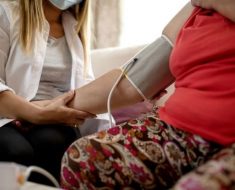Statistics don’t lie, the HPV vaccine is proving to be exceptionally effective for the young women of England.
The HPV vaccines have been a controversial topic since their introduction – especially in the United States. The statistics, however, don’t lie. According to a recent report by CNN, the introduction of the HPV vaccination has led to a dramatic decline in the number of young women contracting cancer-causing infections in England based on new data from the Public Health England.
Statistics show that in just six years (between 2010 and 2016) the number of young women between the ages of 16 and 21 who suffered from HPV 16 and 18 infections fell 86 percent. CNN noted that HPV 16 and HPV 18 are two of the more common types of human papillomavirus that cause most cases of cervical cancer.
It was a decade ago in 2008 when the HPV vaccination program was first introduced. It quickly led to the decline of five different types of HPV which were collectively responsible for roughly 90 percent of all cases of cervical cancer. The HPV vaccine has also been confirmed as effective in preventing less risky strains of human papillomavirus as well.
David Mesher, lead author of the study published this week in the Journal of Infectious Diseases, told CNN all about the positive effects resulting from the HPV vaccine.
“The study shows the positive effects of HPV vaccinations. There have been some very positive results from the program.”
The study also discovered that the HPV vaccine was even preventing other strains of the virus that it was not created with the intention of protecting against.
“There are lots of different HPV types and some types are closely related. Similar types tend to have some cross-protection.”
This particular study took samples of a little over 15,000 women between the ages of 16 and 24 between the years of 2010 and 2016 all across England.
In addition to HPV infections, the study has also noticed a evident decline in the number of both boys and girls between the ages of 15 and 17 who were diagnosed with genital warts between the years of 2009 and 2017.
While John Doorbar, professor of viral pathogenesis at Cambridge University, did not have any connection to the study, he did confirm to CNN that certain strains of HPV can cause genital warts so the decline noted in the study made sense.

HPV is an infection spread through intimate contact that both men and women can contract. The infection is especially dangerous for women as certain strains of it pose an extreme risk for developing into cervical cancer.
Most medical experts recommend girls receive the HPV vaccine between the ages of 12 and 13 as that is when it is believed to be most effective for the young, developing female body.
To date, there are more than 100 different strains of HPV. While the vaccine doesn’t protect the human body from every strain, it has proven to be extremely effective in protecting young woman from developing cervical cancer.
Source: Read Full Article





